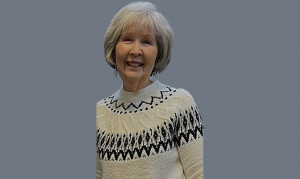Local environmental activist Dennis Chase has been submitting opinion columns to The Citizen since the mid-1990s, longer than most local officials have been in politics.
So when Dennis asked me a couple of questions about the upcoming county-wide sales tax referendum, I emailed him my opinions.
Dennis asked, “In my dealing with the SPLOST issues, I was asked a question about how the county could allocate extra money from the greater county portion and distribute it to the cities. Specifically the question came in: ‘Is the Fayette County Commission buying votes from the city residents by transferring our tax dollars away from us? And, does that amount to buying votes in the cities with our tax dollars?’ I had no answer. Any ideas?”
My reply:
I think you are asking at least two (and maybe more) questions that have legal answers, political answers and (maybe) moral answers.
1. My opinion: Yes, it looks like the county is sweetening the honeypot for the cities as an extra incentive to support the tax.
2. By “us” and “our,” I assume you mean the residents of unincorporated Fayette. Can’t answer that, since the allocation formulas have always been somewhat arbitrary.
The cities have made counter-arguments in the past that the SPLOST split usually over-allocates to the unincorporated areas, since the major sales tax producing businesses are overwhelmingly located in the incorporated areas, which have to bear the brunt of the costs of services.
This answer mostly depends on whose ox is getting gored.
3. The legal issue is probably less muddy. Local governments have some wiggle room within the state rules about splits. Probably no case there.
4. Political: Mainly it’s about where the votes are. Who wins that argument?
5. Moral: Several cases could be made here, again depending upon your perspective about taxation in general and in particulars.
Here’s my moral gripe: The first letter in the acronym SPLOST stands for “Special.” It’s a “special” tax, for extraordinary purposes, in my opinion.
The historical name for the County Commission is the “Fayette County Commission of Roads and Revenues,” indicating that primary reason for the existence of the county government is to look after and be responsible for the “Roads.”
I take that to mean that the primary allocation of whatever general taxes the commission levies ought to go toward the commission’s primary reason for existence: Roads.
The governing body has lost its way (perverted its mission, if you will) if its normal taxing power is diverted away from its primary responsibility to care for the roads, including the water that runs off, over or under them.
The county uses its general fund (mainly from ad valorem taxes) to pay for many things, many of which are nice to have. But if the commission pays for other things, however nice they might be, and neglects road repair and upkeep, it fails in its fundamental (state) constitutional duty.
Whatever is left after road repair can then be allocated to other nice — even “special” — things. Maybe that’s the only legitimate reason for ever having a SPLOST — for “special” things.
For that reason alone, I abhor the notion of a “special” tax to pay for what ought to be taken care of with our ad valorem taxes.
***
I have some further thoughts since that email that I’d like readers of this column to consider.
I checked the most recent county budget for Fiscal Year 2013, approved last summer by a board that lost three of its five members by the end of calendar year 2012.
That budget (www.fayettecountyga.gov/finance/budget2013/FY%202013BudgetDocument.pdf), which expired earlier this summer, expended $84.56 million for all county services. More than half of it went to public safety, like the sheriff’s department, EMS, and the like. Big chunks also went to pay for the court system, tax commissioner, tax assessors and the like.
But I found striking how little was actually spent on anything to do with roads and stormwater issues.
Check the budget for yourself, but here’s what I gleaned with a quick overview.
The previous commission allocated about one-and-a-half percent of its total budget to actual road projects (three of them for $1.32 million).
For stormwater issues, the previous commission designated spending $450,000 on drainage improvements to four roads. That’s a half of one percent of the total budget.
For comparison’s sake, here’s what last year’s commission allocated for spending on two parks alone, McCurry and Kenwood: $3.1 million.
To sum up, last year’s commission thought more money — more than a million more — ought to go to sprucing up parks than attending to roads, their primary constitutional duty.
I suspect commissions of prior years — maybe the last 20 or 30 years — have also found other missions more compelling than their primary one of maintaining the roads of Fayette County.
Fayette County Commission Chairman Steve Brown complains that today’s commission is simply trying to cope with years of neglect by floating a “special” tax to fix our roads and drainage problems.
He is right, as far as he goes.
What he doesn’t say is whether the current commission will improve on past commissions by shucking off the nice-to-have and ponying up a much larger percentage of the county budget to fulfilling its primary constitutional mission.
I tend to take a more radical view, radical in the original Latin sense of getting at the root of something.
I say use the general fund to pay for roads and public safety, the commission’s fundamental constitutional duty. If anybody wants anything else, including spiffy parks, float a “special” tax to pay for those special things.
[Cal Beverly has been editor and publisher of The Citizen since 1993.]












Leave a Comment
You must be logged in to post a comment.